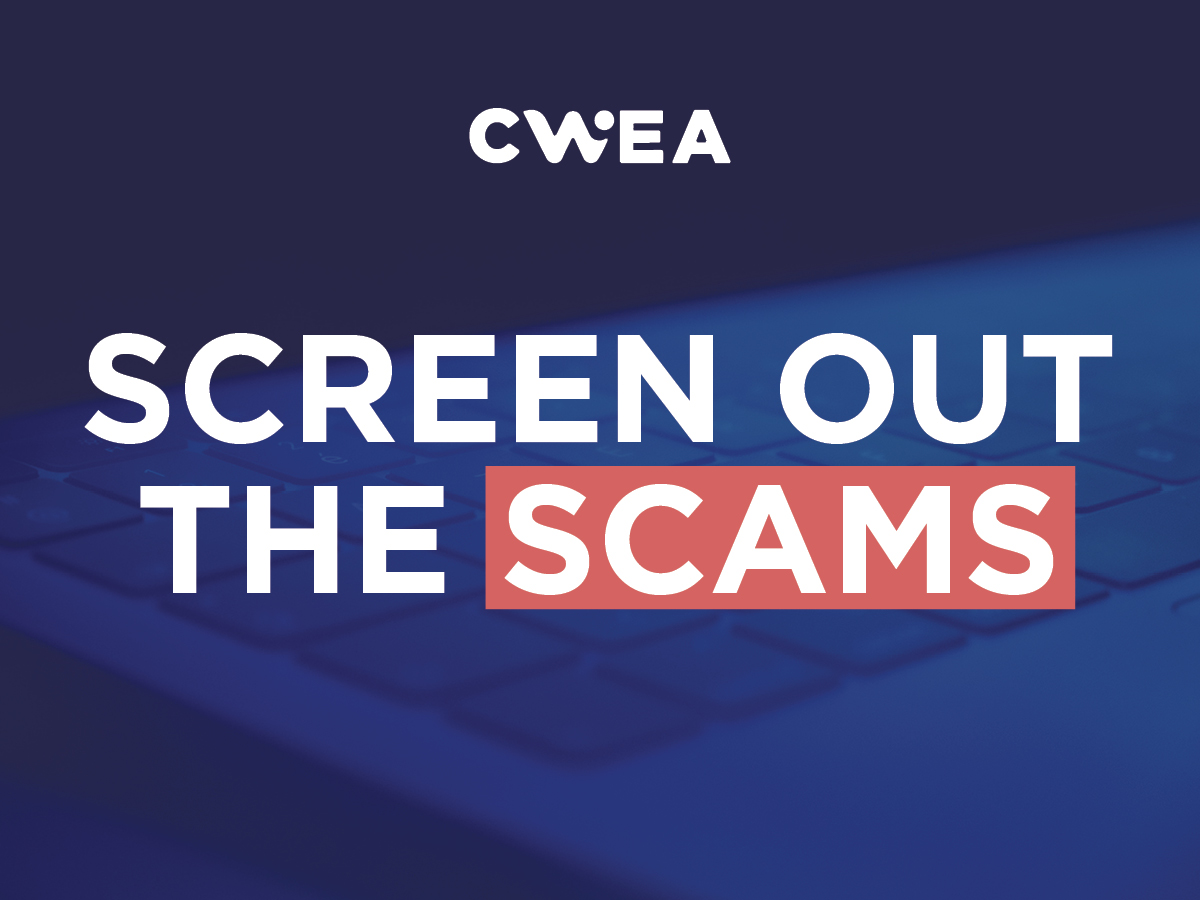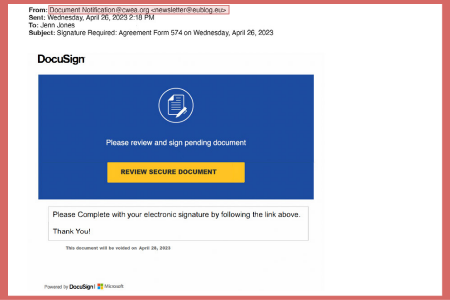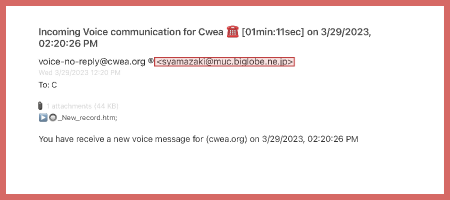
With the recent uptick in online scams and cybercrime attempts, CWEA is taking steps to help protect members and volunteers from being exploited by cybercriminals. CWEA has put together this scam clarifier will help you screen out scams with tips on how to spot and avoid scams, what to do if you encounter a suspected scam, and examples of scam attempts targeting CWEA.
CWEA staff and volunteers will never ask you to purchase items or pay vendors on their behalf.
Please follow your organization’s IT policies for reporting scams and email us about a scam targeting a CWEA member.
While cybercrime comes in many forms and is constantly evolving with technology advancements, there are tell-tale signs you can look for to screen out the scams, like the four P’s listed below. Mostly importantly, know that CWEA staff and volunteers will never ask you to purchase items or pay vendors on their behalf.
Remember the Four P’s:
THINK before you act.
CONTACT the person they claim to be using verified contact information.
REPORT suspected scam attempts by following your organizations IT policy.
EMAIL US about scams targeting CWEA members.
Cybercriminals will attempt many different types of scams. For a comprehensive list of new and common scams, check out the Federal Trade Commission’s (FTC) Consumer Alerts. The most common tactics and scams targeting CWEA staff and members have been spoofing, imposter scams, gift card scams, and phishing scams, which you can find descriptions and examples of below.
Spoofing: Scammers use this tactic to disguise an email address, sender name, phone number, or website URL to convince you that you are interacting with a trusted source.

The sender name, “Document [email protected],” attempts to disguise the actual sender address. The email has copied the design of a DocuSign emails to convince the recipient that it is from a real and trusted source.
Imposter Scams: Scammers pretend to be someone you trust to convince you to send them money. Imposter scams can vary. One common version is when scammers impersonate a real executive from an organization and ask “their” employees to send gift cards or to wire money on their behalf, reassuring them that they will be reimbursed. CWEA has also experienced scammers impersonating board members to request money from volunteers.

The scammer is impersonating a CWEA executive and pressures the target to act quickly. The unusual Gmail sender address is a clear indicator of this being a scam.
Scammers will often spoof the boss’s email address making these emails seem quite convincing. Scammers are also able to identify conferences or speaking engagements that an employer may be traveling to, thanks to promotional materials, helping them to time an email from “the boss” at a time the real boss would be hard to reach for an employee to verify the legitimacy of the request.
Gift Card Scams: Someone asks you to pay for something by putting money on gift cards and then they will ask for the number and PIN on the back of the card. CWEA staff and volunteers will never insist you pay them with a gift card and anyone insisting to be paid with a gift card is a scammer.
Phishing Scams: These scams are designed to trick you into giving sensitive information and will try to convince targets to respond to an email, click a link, or open an attachment by using impersonation and spoofing techniques to pose as a legitimate source.
Phishing attempts can come as emails, SMS (text) messaging, phone calls, voice emails, or VoIP (voice over Internet Protocol) calls.

Voice email phishing scams claim you have a voice message and must click on a link or attachment to access it.
How to Recognize and Avoid Phishing Scams
What To Do if You Were Scammed
Report Scams and Scam Attempts to the FTC